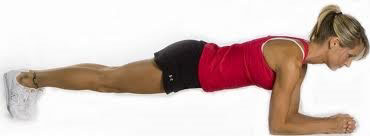Follow Us x
The holidays can be a joyful time, offering a chance to reconnect with friends and family. But they can also be stressful. You may feel pressure to buy and give gifts. Maybe you are worried about money. The holidays can also be hectic. There never seems to be enough time to get things done.
Think about the kinds of events that trigger stress for you during the holidays.
Then you can focus on one or two things you can do that will help the most to reduce stress.
To help you manage stress and stay healthy during the holidays, adopt these healthy behaviors:
Eat a well balanced diet. Carbohydrate- rich foods can indirectly increase serotonin levels in the brain, helping to regulate your mood. Eat plenty of fruit, vegetables and whole grains which contain fiber, vitamins and minerals needed by the body during stressful situations.
Exercise regularly. Exercise not only helps to strengthen the heart and lungs but can also
lower blood pressure and increase energy levels. Exercise also releases the “feel good” chemicals called Endorphins that help elevate your mood. Plus it channels that stressful energy into something positive.
Improve time management skills. Prioritize tasks, make the most of your calendar and “To Do” lists and delegate when possible. Let go of the perfectionist mentality.
Discover relaxation techniques. It’s important to find the best way for you to relax. Some ways might be: Yoga, exercise, meditation, visualization, massage therapy, deep breathing or reading and writing.
Get plenty of sleep. Sleep allows you to “turn off” your brain giving you a chance to reenergize. Sleep also allows your body to slow down and rest causing a decrease in blood pressure.
Laughter is the best medicine. Laughing causes our bodies to release those all-important endorphins, which help us feel better. Seek out the company of upbeat people or watch comedies on TV.
There are ways to reduce stress during the holidays but you must make sure to integrate these strategies into your holiday plan:
Pick and choose your holiday activities. If the things on your list that you have to do outnumber the things that you want to do, it's time to make your list more manageable by eliminating some of these holiday activities.
Get an early start. There's no rule that says that all Christmas activities have to be crammed into the week before Christmas. Stretching out your holiday activities over a longer period of time can really help reduce Christmas stress.
Get help. Who says that you personally have to wrap all the Christmas gifts, do all the baking, and/or do all the holiday season decorating? Assign some tasks to other family members, have holiday parties catered and hire a cleaning service to clean your home. Hiring out to business can greatly reduce your holiday stress.
Buy online. You don't have to take the time to drive anywhere to shop if you don't want to. Reduce stress by shopping and buying Christmas gifts online.
Call ahead. Why go six places looking for that one Christmas gift when you could just make a few phone calls, go to one place and pick it up?
Combine your errands. To reduce stress, pre-plan and coordinate your journeys. You can easily combine running errands with Christmas shopping, for example, so why make separate trips? And why go Christmas shopping ten or twelve times? Use your list and make your calls to cut down on the hours you need to spend shopping.
Turn chores into events. Everyone finds some holiday season activities that have to be done drudgery. Make whatever it is you find drudgery more enjoyable by making it special and different. For example, make the Christmas baking a family affair or invite some friends over for a tree-trimming night.
Take time to relax. Take the time to drive around and enjoy the incredible displays of Christmas lights, attend a special holiday concert, make snow angels with the kids, or just take a long hot bath. Your Christmas stress will drop considerably.
Plan ahead for next year. Christmas supplies, such as decorations and gift wrap, are often available at discounted prices in the week after Christmas, and they don't go bad! It's easy enough too to buy Christmas gifts any time of year; all it takes is some planning.
Warm Up Your Winter Workouts
With many of us setting New Years resolutions to focus on exercise and weight loss, odds are those plans will f alter. January is usually the month when people in the U.S. exercise the least, according to the 2010 Gallup-Healthways Well-Being Index. In a recent study by the University of Michigan, researchers confirmed that as the temperature drops, so does participation in exercise. But according to the American College of Sports Medicine, you can burn up to 40 percent more calories while exercising when it’s cold.
Here are 4 steps to improve your winter workouts:
1) Layer up. During exercise, your body uses 20 to 30 percent of it’s energy for movement. The remaining 70 to 80 percent is released as heat. To retain that warmth, wear clothes in layers that can be loosened or removed to regulate your temperature. To avoid overheating, dress so that you feel slightly cold at first. Start with a synthetic layer made of materials like polypropylene or Thermax which draws perspiration away from your skin and towards the next layer. For the middle layer, add warmth with merino wool sweaters or lightweight fleece jackets. Choose a turtleneck since it can lock in heat. Top your layers with a breathable, water-repellant shell with vent flaps on the upper back and underarm areas.
2) Shield your extremities.They suffer in cold weather because your body reacts by reducing blood flow to the surface of the skin to protect vital organs. Here’s how you can stay warm:
- Feet: Winter shoes should have more traction and less ventilation. Buy a larger size to accommodate and extra or thicker pair of socks.
- Hands: Try thin, synthetic gloves underneath gardening gloves or if your hands get cold, wear thick mittens instead of gardening gloves.
- Head: At least 40 percent of your body’s heat loss occurs through your head. Wearing a wind-resistant cap can minimize the heat loss. If your face gets cold, cover it with a fleece or wool scarf. Protect your ears with a thick headband or earmuffs.
3) Prep with a snack. Start your workout 30 to 60 minutes after eating to benefit from the heat generated during digestion. This can help you stay warmer, with food serving as fuel.
4) Hydrate. Dehydration is still a concern in cold weather. In addition to sweating, your body loses moisture as it humidifies the cold air you inhale.
SNOW SHOVEL SAFETY
Whether you like it or not, winter is coming. The Farmer’s Almanac is predicting a “teeth-chattering” cold and snowy winter for 2018-2019. And with that comes the back-breaking activity of snow removal. Shoveling snow doesn’t have to be an activity that makes you reach for the ibuprofen afterword if you follow a few simple tricks.
National Safety Council recommends the following tips to shovel safely.
- Do not shovel after eating or while smoking
- Take it slow and stretch out before you begin
- Shovel only fresh, powdery snow; it's lighter
- Push the snow rather than lifting it
- If you do lift it, use a small shovel or only partially fill the shovel
- Lift with your legs, not your back
- Do not work to the point of exhaustion
Protect your back by following these lifting techniques for snow removal.
- On the way down, access the snow by bending your knees, thereby lowering your body.
- Do not try to get down to the snow by bending your back.
- On the way up from scooping snow, use the muscles in your legs to raise yourself back up.
- Keep the load in close to your body. This will minimize the stress on your back.
- Keep your abdominals tight throughout the lift to avoid strain on your low back.
- Do not try to stand back up with your arms stretched way out away from your body. When you do this, your back is lifting the weight of that snow on your shovel blade.
STRENGTHEN YOUR CORE
Having a strong core will help to prevent back, shoulder and hip injury plus it will give you the strength and power to push through anything, including shoveling snow. The plank exercise is one of the easiest and most effective exercises you can do to strengthen your core muscles.
- Lie on your stomach on a mat with your belly button drawn in toward your spine. Place your elbows directly under your shoulders, tuck them in tight toward your torso and contract your upper back.
- Squeeze your glutes tight and slowly raise your hips up so your torso is parallel to the floor and hold.
- Do not hold your breath or let your hips sag.
- Hold for 15-30 seconds then relax. Gradually try to hold for up to a minute.
Healthy Recipes...
 We’re called Health Coaches because our focus is on helping individuals preserve and optimize their health. Our goal is to offer superior, safe, customized health and wellness programming, devised by the area’s best-trained, most respected health professionals.
We’re called Health Coaches because our focus is on helping individuals preserve and optimize their health. Our goal is to offer superior, safe, customized health and wellness programming, devised by the area’s best-trained, most respected health professionals.


